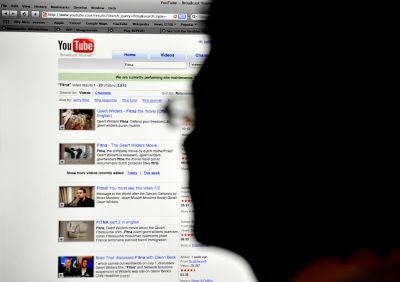YouTube extends automatic video captioning

Your support helps us to tell the story
From reproductive rights to climate change to Big Tech, The Independent is on the ground when the story is developing. Whether it's investigating the financials of Elon Musk's pro-Trump PAC or producing our latest documentary, 'The A Word', which shines a light on the American women fighting for reproductive rights, we know how important it is to parse out the facts from the messaging.
At such a critical moment in US history, we need reporters on the ground. Your donation allows us to keep sending journalists to speak to both sides of the story.
The Independent is trusted by Americans across the entire political spectrum. And unlike many other quality news outlets, we choose not to lock Americans out of our reporting and analysis with paywalls. We believe quality journalism should be available to everyone, paid for by those who can afford it.
Your support makes all the difference.YouTube, in a significant development for deaf Web users, extended automatic caption capability to all English-language videos on the video-sharing website on Thursday.
YouTube users have been able to manually add captions to videos since 2008 and in November of last year the site began offering machine-generated captions for about a dozen partner channels.
Hiroto Tokusei, a YouTube product manager, said in a blog post on Thursday that the automatic caption, or auto-caption, feature was now being expanded to all videos on the site in English.
Auto-captioning uses speech-to-text technology to generate subtitles.
"Making video easily accessible is something we're working hard to address at YouTube," said Tokusei, citing studies that predict that over 700 million people worldwide will suffer from hearing impairment by 2015.
While the auto-caption feature currently only works for videos where English is spoken, Tokusei said users can use Google's automatic translation service to simultaneously translate the captions into 50 other languages.
Auto-captioning in more languages will be added "in the months to come," Tokusei said.
The YouTube project manager noted that auto-captioning is not yet perfect and a "clearly spoken audio track" without background noise is needed to create quality captions.
One of the chief advocates for captioning capability at YouTube has been Vint Cerf, the Google vice president who has been described as the "Father of the Internet."
Cerf, who is hearing impaired and has been wearing hearing aids since the age of 13, made a personal appearance at the unveiling of the YouTube auto-caption features at Google's Washington offices in November.
Join our commenting forum
Join thought-provoking conversations, follow other Independent readers and see their replies
Comments